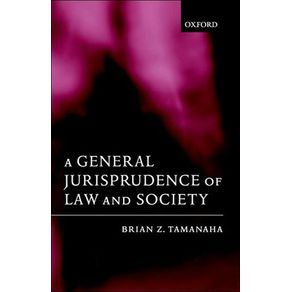Winner of the Law and Society Association Herbert Jacob Book Prize 2002 'A General Jurisprudence of Law and Society' is a theoretical and sociological exploration of the relationship between law and society. Law is generally understood to be a mirror of society--a reflection of its customs and morals--that functions to maintain social order. Focusing on this common understanding, the book conducts a survey of Western legal and social theories about law and its relationship within society. It then engages in a theoretical and empirical critique of this common understanding. The theoretical critique exposes the mythical quality of the two most often repeated theories about the emergence of law, the evolutionary theory and the social contracttheory. It also discusses a fundamental shift, resulting from Enlightenment ideas about reason and morality, in the theoretical understanding of the relationship between morality and law. The empirical critique covers various subjects, primarily including the impact of legal transplanation and globalization. Brian Tamanaha then constructs an alternative universally applicable framework with which to understand the relationship between law and society. The core component to this framework is a non-essentialist approach to the concept of law, which provides a basis for understanding of the phenomenon of legal pluralism. Finally, the book articulates how this framework would operate in facilitating our ability to study, understand, and criticize the relationship between law and society in a variety of contexts around the world today. In addition to illuminating the relationship between law and society, a key aspect of the argument of this book is to construct an approach to law that integrates legal theory with sociological approaches to law.



